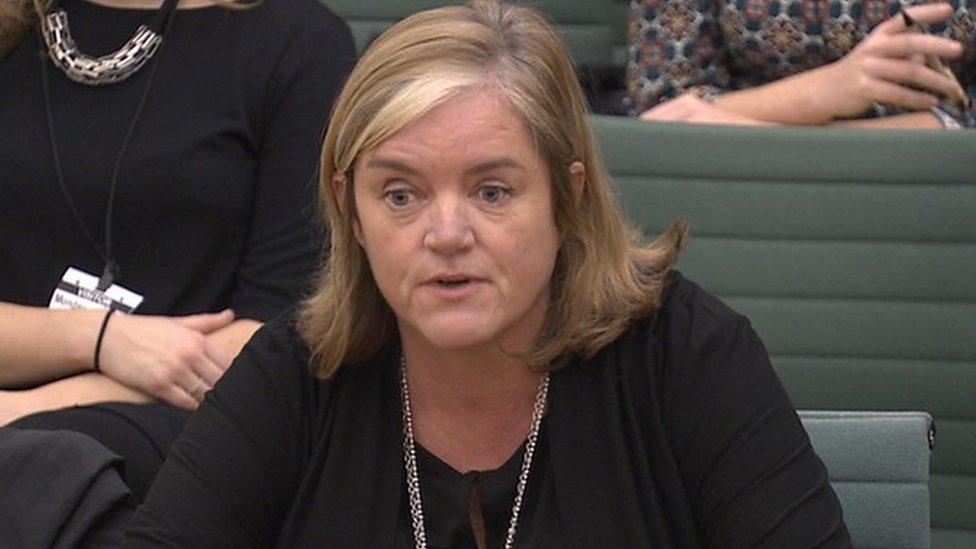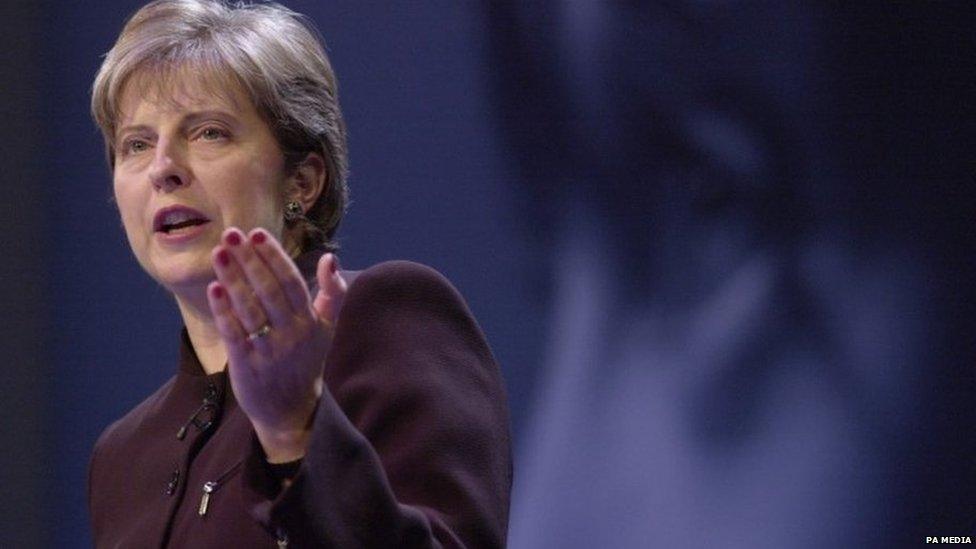Louise Casey: Ex-adviser's 'nasty party' analogy will sting the Tories
- Published

The "nasty party". A tag first used by Theresa May nearly 20 years ago, when she told her party from the conference platform that some members of the public saw them in that way.
It's a label that successive Conservative regimes have tried to escape since then, a label that fairly or not, stuck in the minds of many members of the public.
And it's a label that Boris Johnson, the prime minister with the first chunky Tory majority for years certainly won't want to revive.
That's why the warning from Dame Louise Casey, who until recently was advising his government, may hurt. She is not the first person to raise the alarm about the wisdom of removing the extra £20 a week in universal credit at the end of March from millions of families.
The opposition parties, some Tory MPs and even some ministers, are pushing for a change of heart.
But the association with that old tag is a public warning, not just about the practical impact the change would have at a time of enormous need, but spells out what even some ministers see as the political risk to the move.
As we head towards the Budget at the start of March, the Treasury and Number 10 face a series of decisions about whether or not to extend support systems like the universal credit raise, loans for businesses, or the vast furlough scheme, that were designed in haste at the start of the pandemic and that have lasted longer than most had feared.
The amount of borrowing and spending to pay for them is eye-watering by any historical peacetime comparison. Even in an era of rock bottom interest rates that can't be ignored.
Dame Louise says she "can understand this chancellor doesn't want to be the chancellor that says his cheque book is forever open".

Some people call us the nasty party. Theresa May told activists in 2002
But the end of lockdown is still an unknown date in the future, and tight restrictions are still in place. For as long as that's the case, it is hard for ministers to argue the emergency is over.
And for as long as the crisis is with us, the pressure will be on to keep getting unprecedented amounts of taxpayers' cash out of the government's door.
Ministers' language on the specific decision on universal credit has already softened in the last few days, with the government now publicly connecting upcoming choices to the progress of the vaccine rollout.
Even if after its early success it goes entirely to plan, a rapid economic and social bounce back can't be guaranteed.
And in Dame Louise's view the chances of a return to normality fast are slim.
She says "the country has been torn to shreds" by the pandemic, warning that beyond the health crisis, "the wounds it has inflicted on the country are far deeper and greater than anything I've ever seen in my lifetime in terms of ordinary folk, having to claim universal credit, ordinary people having to turn to food banks, ordinary people becoming homeless".
And she warns the country "will need to have a big plan to deal with the wounds inflicted by this pandemic once everybody's vaccinated".
She is the person governments often turn to when they want to hear hard truth. Her warning to the prime minister about the political as well as the practical risks may sting.
